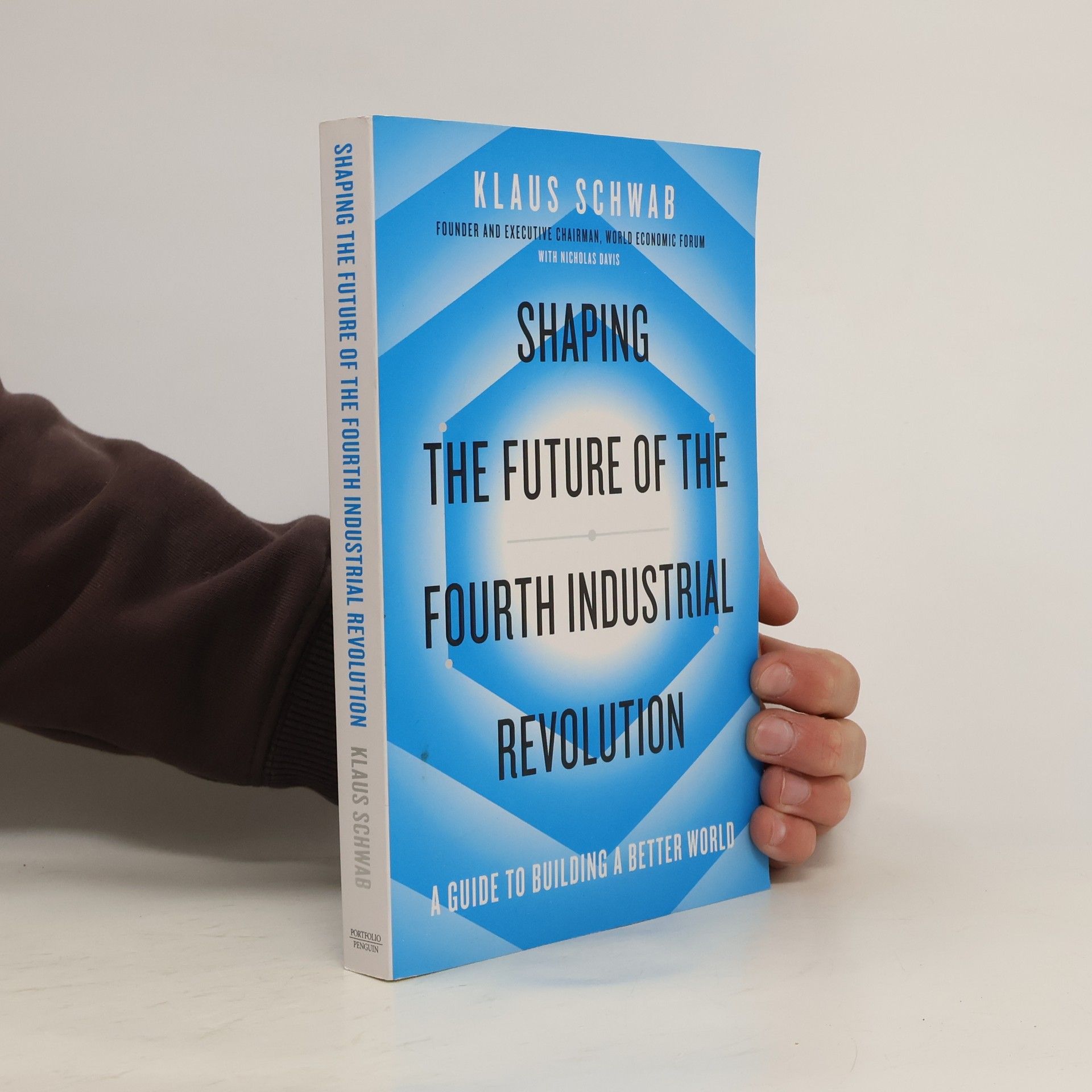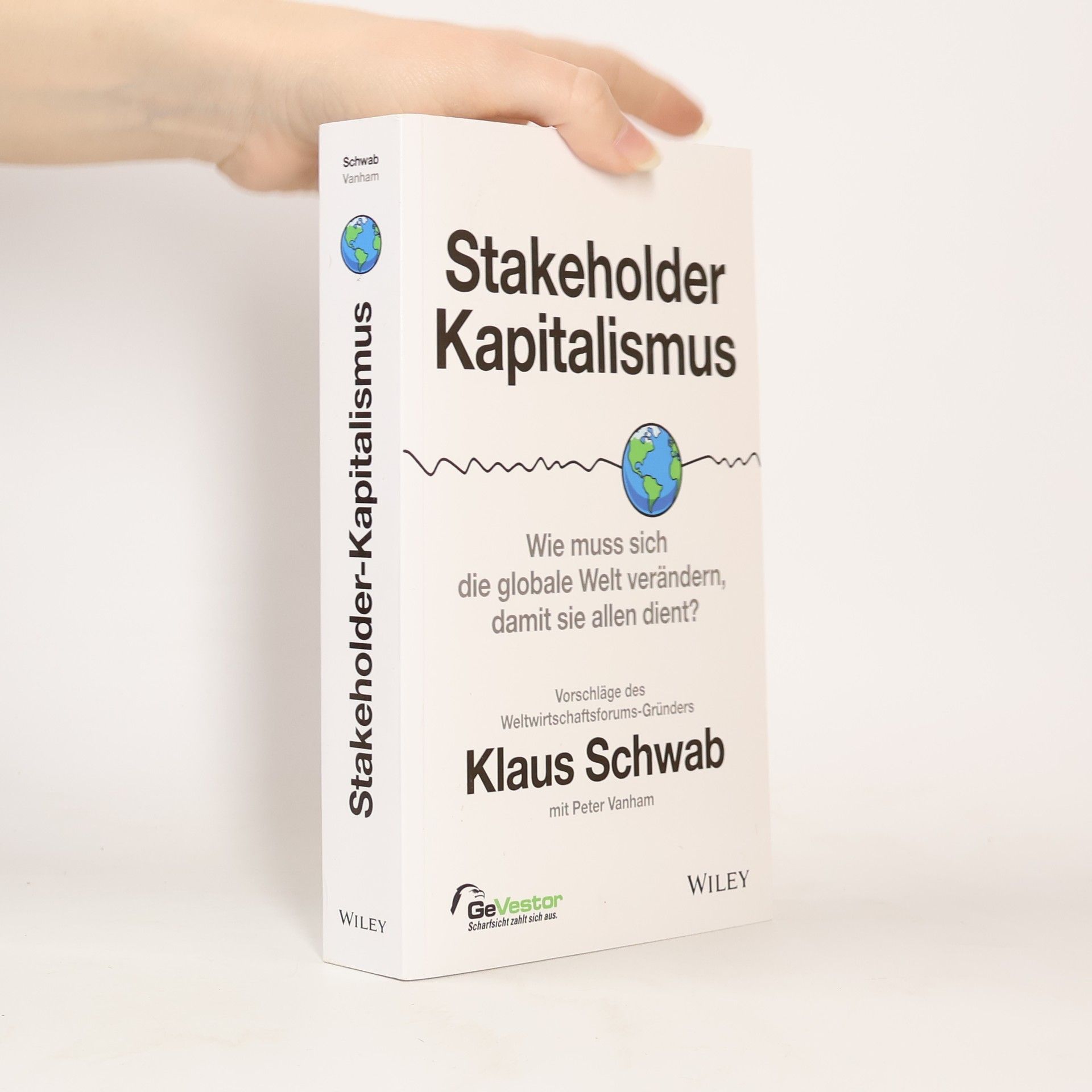Our global economic system is in disarray, characterized by upheaval, unsustainability, and uncertainty. To create an economy that benefits all people and the planet, we must address rising income inequality, the monopolistic power of large corporations stifling innovation, and the environmental degradation caused by resource exploitation. The ongoing debate about the root causes of this broken economy—whether due to laissez-faire policies, mismanaged globalization, or technological disparities—remains unresolved. The argument presented emphasizes that recognizing the true nature of our problems is crucial for progress. The author, a prominent figure at the World Economic Forum, investigates the underlying issues and explores solutions found in best practices globally, from diverse countries like China, Denmark, and New Zealand. Key insights include the importance of individual agency in policy-making, establishing a social contract based on shared values, planning for future generations, and redefining economic success beyond GDP to encompass holistic measures of societal well-being. By accurately diagnosing our situation, the work identifies actionable strategies for reshaping the global economy. Each chapter illustrates how individuals, businesses, and governments can collaboratively mend the fractured system, fostering a more equitable and sustainable future for all.
Klaus Schwab Book order (chronological)







Kapitalizmus zainteresovaných strán
- 400 pages
- 14 hours of reading
Klaus Schwab prichádza z novou predstavou našej globálnej ekonomiky. Tá by sa mala stať udržateľnejšou a prosperujúcejšou. Akurát nie pre všetkých rovnako. Náš globálny ekonomický systém je narušený. Globálna ekonomika dnes funguje na inováciách. Súčasný obraz globálnych procesov, neudržateľnosti a neistoty, môže podľa autora nahradiť v budúcnosti ekonomika, ktorá bude fungovať pre všetkých ľudí na celej planéte. Riadiť ju však budú vyvolení. Klaus Schwab je zakladateľom a výkonným predsedom Svetového ekonomického fóra v Davose (WEF). V knihe “Kapitalizmus zainteresovaných strán” sa snaží nájsť skutočné príčiny nedostatkov nášho systému a riešenia v oblasti osvedčených postupov z celého sveta a to na miestach ako Čína, Dánsko, Etiópia, Nemecko, Indonézia, Nový Zéland či Singapur. Kapitolou po kapitole sa Schwab snaží čitateľovi vysvetliť, že existujú spôsoby, ako môže každý a na všetkých úrovniach spoločnosti pretvárať rozbité kúsky globálnej ekonomiky a to na úrovni jednotlivých krajín, v samostatných spoločenstváchch až po jednotlivca.
Stakeholder-Kapitalismus
Wie muss sich die globale Welt verändern, damit sie allen dient? - Vorschläge des Weltwirtschaftsforums-Gründers
- 455 pages
- 16 hours of reading
Kritiker sehen im Weltwirtschaftsforum einen elitären Club machtversessener Bosse und Regierungschefs. Für seinen Gründer Klaus Schwab ist es ein Ort, der die Welt besser macht. In diesem Buch will er das nachweisen. Überzeugend legt er zudem Leitlinien dar, an denen Weltkonzerne ihr Handeln ausrichten sollten. Seine detailliert begründeten Vorschläge für einen Kapitalismus, der die Interessen aller Stakeholder, vor allem aber die der Natur und des Menschen bedient, sind es wert, gehört zu werden
Covid-19: Veľký reset
- 253 pages
- 9 hours of reading
COVID-19: Veľký reset je príručka pre každého, kto chce pochopiť, ako COVID-19 narušil naše sociálne a ekonomické systémy. Aké zmeny budú potrebné na vytvorenie inkluzívneho, odolnejšieho a udržateľnejšieho sveta. Klaus Schwab, zakladateľ, donedávna aj výkonný predseda Svetového ekonomického fóra, a Thierry Malleret, zakladateľ Monthly barometer, skúmajú, aké boli hlavné príčiny týchto kríz a prečo vedú k potrebe Veľkého resetu. Ich analýza znepokojuje, no zároveň dáva nádej. COVID-19 spôsobil veľký ničivý reset našich globálnych sociálnych, ekonomických a politických systémov. Avšak sila ľudských bytostí spočíva v tom, že sú predvídaví a vynaliezaví, aspoň do určitej miery; a schopní vziať svoj osud do vlastných rúk a naplánovať si lepšiu budúcnosť. Toto je účel tejto knihy; zatriasť a ukázať nedostatky, ktoré sa prejavovali v našom globálnom systéme ešte predtým, ako prepukol COVID.
Since making its entry on to the world stage, COVID-19 has dramatically torn up the script of how to govern countries, live with others and take part in the global economy. COVID-19: The Great Reset is a guide for anyone who wants to understand how the novel coronavirus could cause so much disruption and suffering, and what changes are needed to create a more inclusive, resilient and sustainable world. The book provides a worrying, yet hopeful analysis. COVID-19, as the greatest public health crisis of the century, has led to enormous economic devastation and made existing inequities worse. But the power of human beings lies in their foresight, ingenuity and – at least to a certain extent – ability to take their destiny into their hands and plan for a better future. This book shows us where to start.
COVID-19
- 332 pages
- 12 hours of reading
Mit seinem Erscheinen hat Covid-19 die bisherige Regierungsführung der Länder, unser Zusammenleben und die Weltwirtschaft als Ganzes gehörig durcheinander gebracht. Covid-19: Der große Umbruch ist ein Leitfaden für alle, die verstehen möchten, wie das neuartige Coronavirus soviel Zerstörung und Leid anrichten konnte und welche Änderungen für eine integrativere, robustere und nachhaltigere Welt erforderlich sind.Das Buch bietet eine besorgniserregende, dennoch zuversichtlich Analyse. Covid-19, die größte Gesundheitsbedrohung des Jahrhunderts, hat enorme wirtschaftliche Schäden verursacht und bestehende Ungleichheiten verschlimmert. Die Macht des Menschen liegt jedoch in seinem Weitblick, Einfallsreichtum und - zumindest in einem gewissen Maße - Vermögen, das Schicksal selbst in die Hand zu nehmen und eine bessere Zukunft zu planen.Dieses Buch zeigt uns, wo wir beginnen müssen. Professor Klaus Schwab ist der Gründer und Vorstandsvorsitzende des Weltwirtschaftsforums. Er ist Verfasser verschiedener Bücher, darunter Die Vierte Industrielle Revolution, und langjähriger Verfechter des "Stakeholder-Kapitalismus". Thierry Malleret ist geschäftsführender Partner von Monthly Barometer, einer prägnanten, prädiktiven Analyse. Er ist Autor mehrerer Bücher zu wirtschaftlichen und wissenschaftlichen Themenund hat vier Romane veröffentlicht.
"The Corona crisis and the Need for a Great Reset" is a guide for anyone who wants to understand how COVID-19 disrupted our social and economic systems, and what changes will be needed to create a more inclusive, resilient and sustainable world going forward. Thierry Malleret, founder of the Monthly Barometer, and Klaus Schwab, founder and executive Chairman of the World Economic Forum, explore what the root causes of these crisis were, and why they lead to a need for a Great Reset.Theirs is a worrying, yet hopeful analysis. COVID-19 has created a great disruptive reset of our global social, economic, and political systems. But the power of human beings lies in being foresighted and having the ingenuity, at least to a certain extent, to take their destiny into their hands and to plan for a better future. This is the purpose of this book: to shake up and to show the deficiencies which were manifest in our global system, even before COVID broke out.
Die Zukunft der Vierten Industriellen Revolution
Wie wir den digitalen Wandel gemeinsam gestalten
Das neue Buch des Gründers und Vorsitzenden des Weltwirtschaftsforums Wir stecken mitten in der Vierten Industriellen Revolution, und sie wird alles verändern: wie unsere Wirtschaft funktioniert, wie wir miteinander umgehen, was es bedeutet, Mensch zu sein. In seinem neuen Buch skizziert der Vorsitzende des Weltwirtschaftsforums Klaus Schwab die wichtigsten Trends der neuen Technologien, die die Vierte Industrielle Revolution ausmachen und entscheidend für die Zukunft der Menschheit sein werden. Er legt dar, wie die daraus entstehenden Chancen bestmöglich für uns genutzt werden können und eine positive und nachhaltige Zukunft gelingen kann. Ausstattung: mit Abb.
Shaping the Future of the Fourth Industrial Revolution
A Guide to Building a Better World
- 288 pages
- 11 hours of reading
The world has fast entered a data and technology-driven era where new opportunities but also challenges are emerging. In this book, Klaus Schwab and the World Economic Forum contribute significantly to one of the most important issues of our time - how to move forward in the Fourth Industrial Revolution Jack Ma Executive Chairman, Alibaba Group Holding, People's Republic of China
Четвертая промышленная революция
- 208 pages
- 8 hours of reading
Мы стоим у истоков революции, которая фундаментально изменит то, как мы живем, работаем и общаемся друг с другом. По масштабу, объему и сложности четвертая промышленная революция не имеет аналогов во всем предыдущем опыте человечества. Нам предстоит увидеть ошеломляющие технологические прорывы в самом широком спектре областей, включая, искусственный интеллект, роботизацию, автомобили-роботы, трехмерную печать, нанотехнологии, биотехнологии и многое другое. Клаус Шваб, основатель и бессменный президент Всемирного экономического форума в Давосе, написал руководство, которое призвано помочь сориентироваться в происходящих изменениях и извлечь из этого максимум выгоды. Эта книга для тех, кто интересуется нашим общим будущим и кто твердо намерен использовать возможности революционных изменений, чтобы изменить мир к лучшему.






